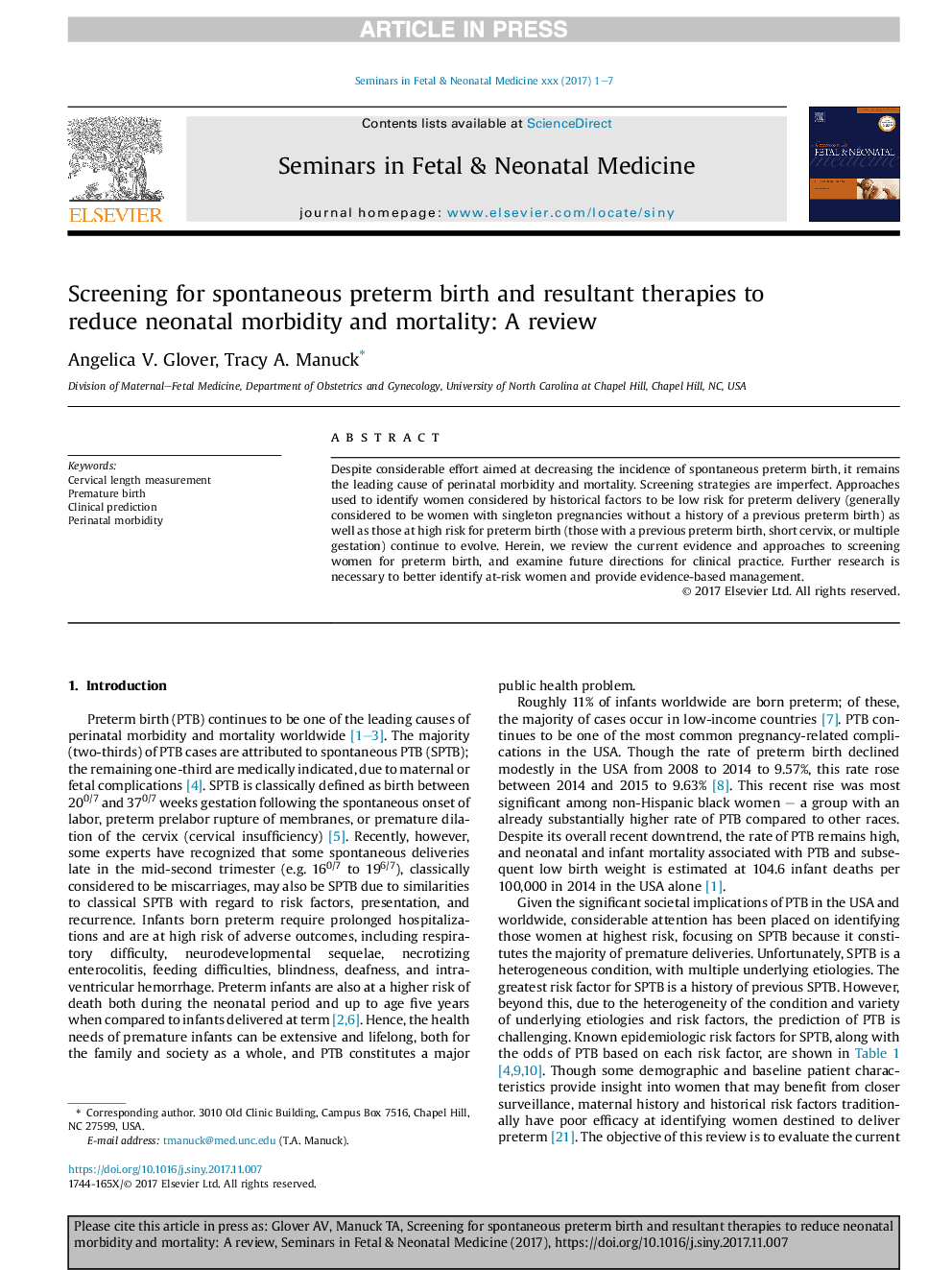| Article ID | Journal | Published Year | Pages | File Type |
|---|---|---|---|---|
| 8784295 | Seminars in Fetal and Neonatal Medicine | 2018 | 7 Pages |
Abstract
Despite considerable effort aimed at decreasing the incidence of spontaneous preterm birth, it remains the leading cause of perinatal morbidity and mortality. Screening strategies are imperfect. Approaches used to identify women considered by historical factors to be low risk for preterm delivery (generally considered to be women with singleton pregnancies without a history of a previous preterm birth) as well as those at high risk for preterm birth (those with a previous preterm birth, short cervix, or multiple gestation) continue to evolve. Herein, we review the current evidence and approaches to screening women for preterm birth, and examine future directions for clinical practice. Further research is necessary to better identify at-risk women and provide evidence-based management.
Related Topics
Health Sciences
Medicine and Dentistry
Obstetrics, Gynecology and Women's Health
Authors
Angelica V. Glover, Tracy A. Manuck,
